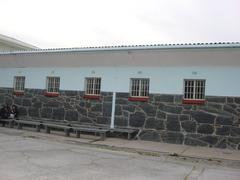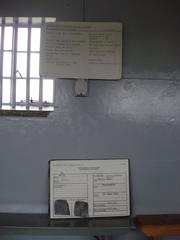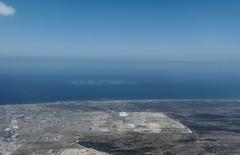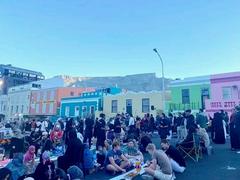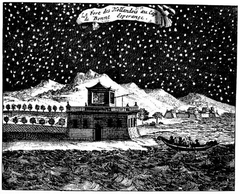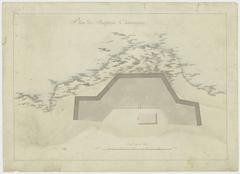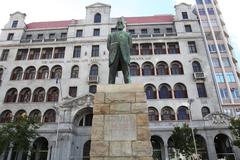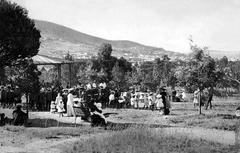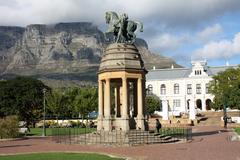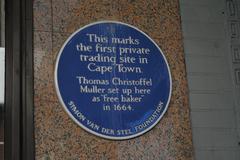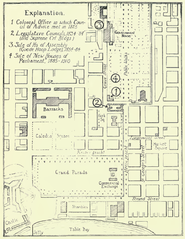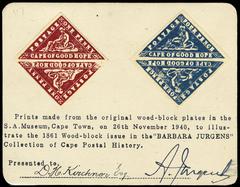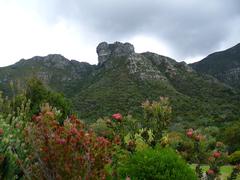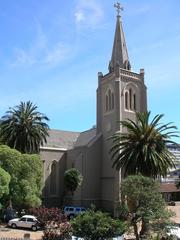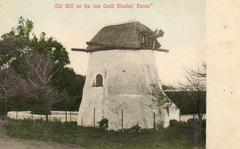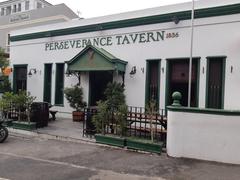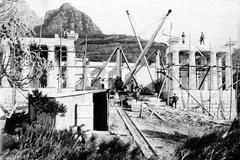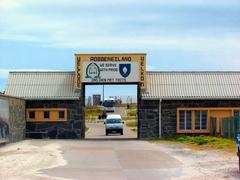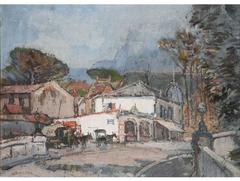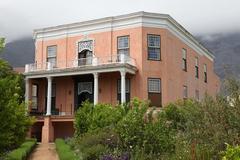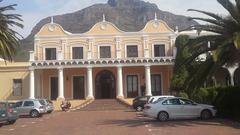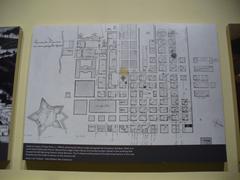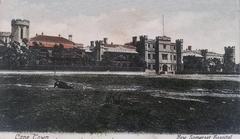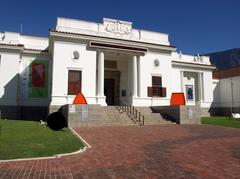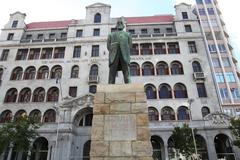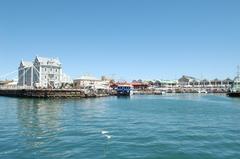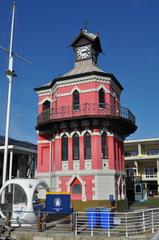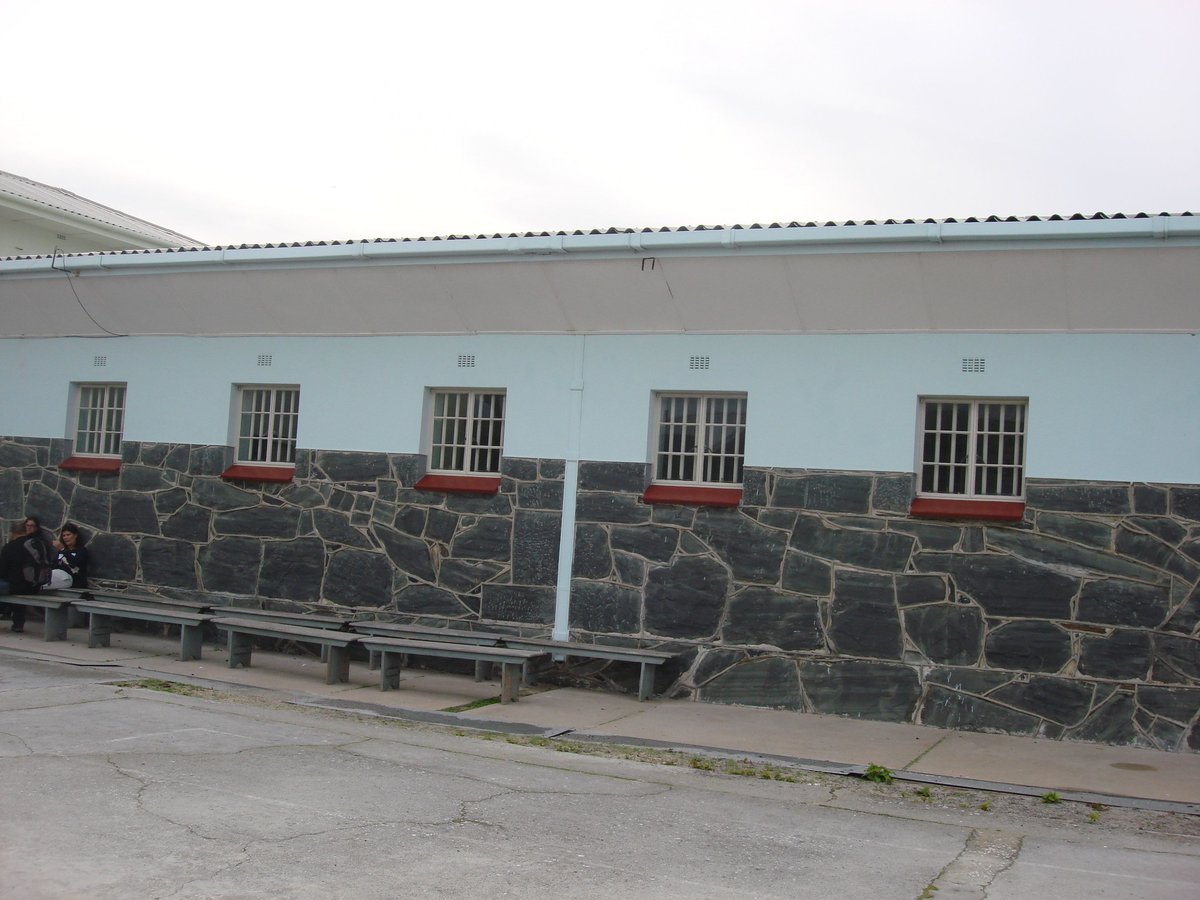
Robben Island Maximum Security Prison: Visiting Hours, Tickets, and Historical Significance in Cape Town
Date: 14/06/2025
Introduction
Robben Island, a UNESCO World Heritage Site situated roughly 7 kilometers off the coast of Cape Town, is one of South Africa’s most iconic and historically significant landmarks. Famously known as the site of Nelson Mandela’s 18-year incarceration, the island encapsulates the resilience and spirit of those who fought against apartheid. Today, Robben Island serves as a living museum and a powerful symbol of the country’s journey toward freedom and reconciliation. This guide provides comprehensive information on visiting Robben Island, including its historical background, ticketing, tour highlights, accessibility, and practical travel advice.
For the latest updates and official details, refer to the Robben Island Museum official website, South Africa Travel, and Cape Tourism.
Table of Contents
- Historical Overview
- Visiting Robben Island: Essential Information
- Tour Structure and Highlights
- Practical Visitor Tips
- Nearby Attractions in Cape Town
- Frequently Asked Questions (FAQ)
- Conclusion and Call to Action
- References and Further Reading
Historical Overview
Early and Colonial History
Robben Island’s history extends over five centuries (SA History; World of History). The indigenous Khoisan people considered it a place of spiritual significance. The island’s name, “Robben,” comes from the Dutch word for “seal,” reflecting the abundant marine life observed by early European explorers like Bartolomeu Dias in the late 15th century.
During the Dutch and British colonial periods, Robben Island was used as a site of banishment for political exiles, slaves, and lepers (Robben Island Tours; SAHRA). It later served as a military outpost and a medical isolation center, particularly as a leper colony from the mid-19th to early 20th centuries.
Apartheid Era: Maximum Security Prison
Robben Island’s most profound legacy stems from its use as a maximum security prison during apartheid. From 1961 to 1991, the island incarcerated political prisoners, including Nelson Mandela, Walter Sisulu, Govan Mbeki, and Robert Sobukwe (South Africa Travel). Prisoners endured harsh conditions, forced labor in the limestone quarry, and severe isolation. Despite these adversities, the prison became an unlikely center of political education and resistance, often referred to as the “University of Robben Island” (ctbig6.co.za).
Post-Apartheid: Heritage and Remembrance
After apartheid, Robben Island was transformed into a museum and declared a UNESCO World Heritage Site in 1999 (Robben Island Tours). The site now serves as a memorial to the struggle for equality and human rights, drawing visitors from around the globe. Many tours are guided by former political prisoners, offering unique and authentic insights into its history (Cape Tourism).
Visiting Robben Island: Essential Information
Visiting Hours and Ferry Schedule
Ferries to Robben Island depart daily (weather permitting) from the Nelson Mandela Gateway at the V&A Waterfront. Standard departure times are 09:00, 11:00, 13:00, and 15:00. Each tour, including ferry transit and guided activities, lasts around 3.5 to 4 hours. It is crucial to check the official website for up-to-date schedules and any weather advisories. Arrive at least 30 minutes before your scheduled departure.
How to Book Tickets
Tickets are limited and in high demand—advance online booking is highly recommended, particularly during peak seasons (November to March and during South African school holidays). Purchase tickets via the Robben Island Museum official website or authorized partners. Third-party vendors like GetYourGuide and Viator may offer additional convenience (World Guides to Travel).
Ticket Prices (as of June 2025)
- South African citizens: R400 per adult, R210 per child (under 18)
- International visitors: R600 per adult, R310 per child (under 18)
Discounts are available for seniors and groups; check the booking platform for current rates.
Getting to the Nelson Mandela Gateway
The Nelson Mandela Gateway is centrally located in the vibrant V&A Waterfront, accessible by taxi, rideshare, or public transport. Secure parking is available, but allow extra time for traffic during busy periods. The area also offers shopping, dining, and cultural attractions—ideal for pre- or post-tour exploration.
Accessibility
Robben Island strives to accommodate visitors with mobility challenges. The ferry and tour buses are wheelchair-accessible, though some areas within the prison have steps and uneven ground. If you require assistance, contact the museum in advance to make arrangements. Restrooms are available at the gateway and on the island, but facilities during the tour are limited.
Tour Structure and Highlights
Upon arrival, visitors board buses for a comprehensive guided tour of the island’s key sites:
- Leper Graveyard: Reflects the island’s use as a medical isolation center.
- Limestone Quarry: The site of forced labor for political prisoners, including Mandela.
- Robert Sobukwe’s House: Home to the prominent activist held in solitary confinement.
- Military Bunkers: Remnants from the island’s strategic use in both World Wars.
- Maximum Security Prison: The highlight is a walking tour led by a former political prisoner, featuring communal cells, isolation cells, and Mandela’s preserved cell.
The experience is both educational and moving, with guides providing personal narratives that deepen understanding of apartheid’s impact. The natural beauty of the island, including views of Table Mountain and resident wildlife like African penguins and Cape fur seals, offers poignant contrast to its somber history.
Practical Visitor Tips
- Advance Booking: Secure your tickets online as early as possible.
- What to Wear: Dress in layers—Cape Town’s weather can change quickly. Wear comfortable walking shoes and bring a windbreaker or light jacket.
- Sun Protection: Bring sunscreen, a hat, and sunglasses.
- Water & Snacks: Bring your own, as refreshment options on the island are limited.
- Luggage: Only small daypacks are permitted; leave large bags at your hotel.
- Photography: Allowed in most areas, but always ask guides before photographing individuals or sensitive locations.
- Weather: Ferries may be canceled due to wind or rough seas; keep your schedule flexible.
Nearby Attractions in Cape Town
Enhance your visit by exploring other historical sites:
- District Six Museum: Chronicles forced removals during apartheid.
- Castle of Good Hope: The oldest colonial building in South Africa.
- Bo-Kaap: A colorful neighborhood rich in Cape Malay heritage.
- Table Mountain: An iconic natural attraction, easily combined with a Robben Island tour.
Combination tickets and guided packages are often available through local operators.
Frequently Asked Questions (FAQ)
Q: What are Robben Island’s visiting hours?
A: Ferries depart from 09:00 to 15:00, but times may change seasonally. Always check the latest schedules online.
Q: How do I book tickets?
A: Book via the Robben Island Museum website or authorized travel partners. Advance booking is essential.
Q: Is Robben Island suitable for children?
A: The tour is suitable for children, but the content may be intense. Parental discretion is advised.
Q: What should I bring?
A: Dress in layers, wear sturdy shoes, bring sun protection, water, and snacks. Large bags are not allowed.
Q: Is the tour accessible for visitors with disabilities?
A: Yes, though some prison areas may be difficult to access. Contact the museum for assistance.
Q: Are refreshments available on the island?
A: Options are limited; it’s best to bring your own water and a light snack.
Q: Can I take photographs?
A: Yes, but always respect signage and your guide’s instructions.
Conclusion and Call to Action
Robben Island stands as a testament to the enduring struggle for justice and the power of forgiveness. A visit offers profound insights into South Africa’s past and serves as a reminder of the universal values of human rights and dignity. Advance planning, respectful conduct, and an open mind will help you make the most of this unforgettable experience.
Ready to explore Robben Island? Book your tickets today and take a step into history. For additional travel tips, download the Audiala app and follow us on social media for the latest updates.
References and Further Reading
- Robben Island Tours: History
- South Africa Travel: Robben Island
- Robben Island Museum: Tour Types
- SA History: Robben Island
- World of History: Robben Island
- Cape Tourism: Robben Island Tour
- World Guides to Travel: Robben Island Tours
- ctbig6.co.za: Top 10 Highlights
- Cape Town Travel: Robben Island Area
- Our Big Journey: Visit Robben Island
